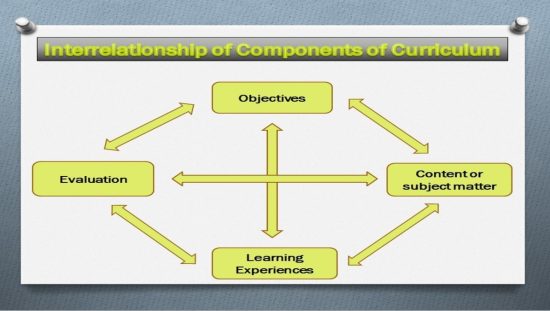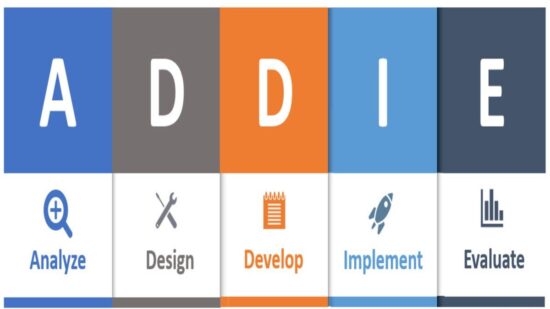Foundations of curriculum are the considerations of educational programs and policies in the light of an interdisciplinary endeavor involving philosophical, psychological, sociological, and historical, understandings.
The foundations of curriculum set the external boundaries of the knowledge of curriculum and define what constitutes valid sources from which to derive the field’s theories, principles, and ideas. Curriculum’s commonly accepted foundations are philosophical, psychological, social and historical areas that are explained as under;
Philosophical Foundations of Curriculum
Curriculum decisions involve a wide range of considerations that anchor on several issues in education. These issues include the purpose of learning, sources of the subject matter, the nature of teaching/learning process, characteristics of the leaner, among others (Ekanem, & Ekefre, 2014). These decisions are based or anchored on certain fundamental beliefs that spring from one’s philosophy of education. This is what made it possible for philosophy to be viewed or taken as one of the foundations of curriculum. The various philosophical thoughts that influence curriculum are Idealism, Realism, Existentialism, Pragmatism, Essentialism, perennialism and Deconstructionism.
Alistair (2000) argues that there is no curriculum that does not draw inspiration from these philosophical schools of thoughts. Philosophy helps us to handle our own personal system of beliefs and values, that is, the way and manner that we perceive the world around us and how we actually define what is important to us. Since philosophical issues have always influenced society and our institutions of learning, the study and understanding of philosophy of education in relation to curriculum development becomes vital and imperative.
Basically, philosophy of education does influence, and to a greater extent determines our
educational decisions and alternatives. This is because; those that are responsible for
curricular decisions need be clear about what the belief or their belief system is. This is
based on the fact that unclear or confused beliefs will definitely lead to unclear and
confusing curriculum (Ekanem, 2013). One vital step in developing a personal philosophy of education is to understand the several alternatives that others have developed over the years.
Psychological Foundations of Curriculum
Educational Psychology as a discipline is concerned with the question of how people learn (Ornstein and Hunkins, 1998). Psychologists are concerned with establishing patterns in human life so as to be able to understand and predict behavior (Shiundu and Omulando, 1992). Educational Psychology as a discipline advances principles of teaching and learning that influence teacher-student behavior within the context of the curriculum. This is because psychology is the unifying element in the learning process. For example John Dewey, a renowned educationist acknowledges that psychology is the
understanding of how the individual learner interacts with objects and persons in the environment. The quality of this interaction determines the amount and type of learning.
Psychology in general and educational psychology in particular contributes to appropriate decision making in curriculum regarding selection and organization of appropriate objectives, learning experiences and methods of evaluation as well as decisions regarding the scope of the curriculum. According to Ornstein and Hunkins (1998) psychology serves as the impetus for many curriculum decisions. Psychological influences of curriculum can best be understood through theories of learning. These theories of learning are classified into three broad categories as follows: Behavioral learning, cognitive and developmental learning and humanistic learning theories.
Social Foundations of Curriculum
Schools are part and parcel of society and exist for society. Society influences society through its curriculum. Schools, through their teaching of the curriculum, can shape and
mold society and society in turn can impact the curriculum. There is rarely a curriculum
that is developed without reflecting society. Thus, to understand how the content of schooling is shaped in any society, we must understand the relationship between education and other institutions in society. In other words, to understand what is taught, how it is taught and why it is taught, we need to look at the social forces that shape the curriculum.
Knowing the social foundations of curriculum is crucial in making decisions about what
should be included in the curriculum and eventually what happens in the classroom. A
curriculum should be able to prepare students for the present and the future. In other
words, a curriculum should address the wants and needs of learners by responding to social conditions locally, nationally and globally
Historical Foundations of Curriculum
History is the creation resulting from human activities through participating in different events. In order to be certain with what will happen in the future, one has to trace back of what transpired in the past. Hence, historical foundation of curriculum addresses different phases of human development. Students recognize that events in culture and personal issues take place continually. The number of events and issues we face is so overwhelming at times that we often don’t know how to make sense out of what is taking place.
The study of history can help students gain perspective on events and issues they face. The ability to break down and analyze events is an important step in critical thinking. From historical foundation of curriculum therefore, a study on politics, economics, geography, agriculture, religion and sociocultural practices are expounded to be certain with the past and predetermine the future for the well-being of the society. Curriculum developers always ensure the historical perspective is well reflected when designing curriculum in order to capture not only the local flavor but also global historical views.
Globalization and Technology
Two other areas, however, deserve equal attention in 21st century society, but have been largely ignored—globalization and technology. Like the other four foundational disciplines, globalization and technology have a significant, yet distinct, influence over curriculum.
Globalization has allowed people around the world to exchange goods, services, and ideas more easily, which significantly changes the way they live and work. It was a process Nobel Prize winning journalist Thomas Friedman popularly foretold in his 2005 book, The World Is Flat. More recently, billionaire entrepreneur and PayPal cofounder Peter Thiel argued that many unchartered frontiers remain unexplored and that only by learning to think for oneself can one develop new ideas. This kind of global perspective has already spurred growing demand for technology in classrooms — including massive open online courses (MOOC), the flipped classroom, digital literacy skills, online testing, and high-speed Internet access in classrooms. Curriculum developers, at some point, will need to acknowledge that globalization and technology are distinctly foundational to education.
Reference
Kuboja, J. M., & Ngussa, B. M. (2015). Conceptualizing the Place of Technology in Curriculum Formation: A View of the Four Pillars of Curriculum Foundations. International Journal of Academic Research in Progressive Education and Development, IV(02), 54-71.
OTHER RELATED POSTS



